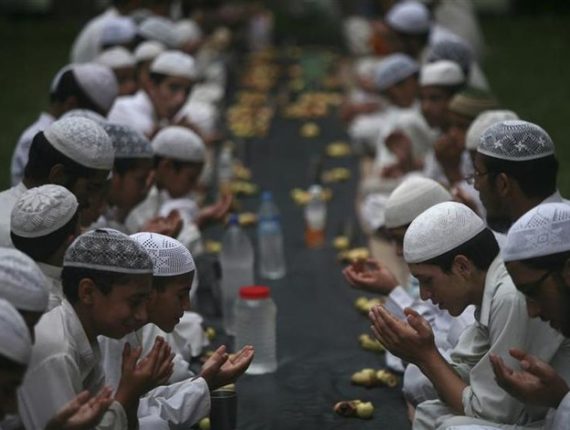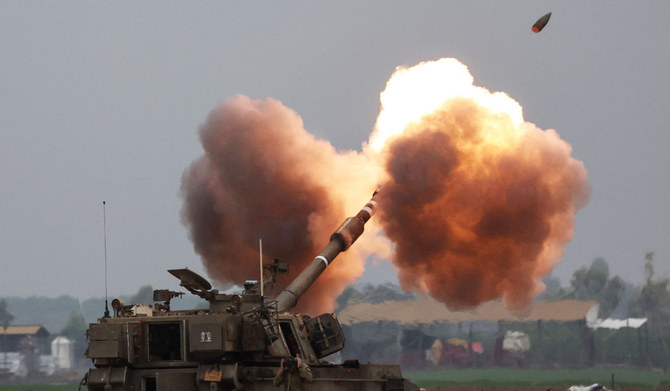Arab News
By: Rabbi Marc Schneier
April 1, 2022

When I was growing up in New York’s Jewish community, Ramadan was far from my consciousness. I knew little of its meaning for billions of Muslims around the world, much less the spiritual significance of the rituals.
Religious holidays in my youth were celebrated neighborhood by neighborhood. Waves of immigrants brought unique customs while joining the march toward a common American dream. But in recent decades, as globalization accelerated and barriers everywhere have crumbled, many of us have become intimately connected with the story of Muslims and Islam, and learned how Ramadan holds lessons for us all.
I have had the privilege of breaking fast during Ramadan from the Gulf to the Maghreb, alongside statesmen and scholars, students and imams. I have found these experiences personally and professionally edifying, and the parallels with Jewish fasting, or ta’anit, are difficult to miss.
We all tend to think first of the practical rituals of fasting and ceremony. While these practices are sacred, they also serve to provide the space for reflection.
In the Muslim tradition, the Prophet Muhammad first withdrew to the cave in Mount Hira because of his dissatisfaction with the widespread social unrest, injustice and discrimination of his time. The Qur’an says that when the angel Gabriel delivered God’s first revelation to Muhammad, he was first instructed to read, but replied that he was not able.
And yet the Qur’anic verse tells us: “He who taught by the pen – taught man that which he knew not.” Even though Muhammad wasn’t literate, he was able to receive the revelations through God’s grace and take them down for the benefit of humanity. I am not an Islamic theologian or scholar, but the message resonates with me. It is that religion holds a special place for humans seeking to overcome seemingly impossible obstacles, and that true faith can take us places we may not be able to reach on our own.
“This Ramadan, when we look around at the conflict and bloodshed in the world today, let us internalize the lesson from Muhammad’s revelation that if we have faith, we can overcome the seemingly impossible.”
Rabbi Marc Schneier
Similarly, the Torah, in Leviticus, instructs all Jews to fast on our day of atonement, Yom Kippur, which also happens to be the date according to our belief that Moses received the 10 commandments from God and transmitted his revelation to the Israelites. We fast for the sin of ignorance and worshipping false gods, and through fasting we seek the strength to overcome temptation, and realize a pure faith that will take us beyond our own limitations.
The world in many ways is fairer and more just today than in the pre-Islamic Arabian Peninsula, or ancient Jerusalem, and yet we still fall short of the guidance given in all divine revelations. We are human after all. We are flawed.
This Ramadan, when we look around at the conflict and bloodshed in the world today, let us internalize the lesson from Muhammad’s revelation that if we have faith, we can overcome the seemingly impossible. The miracle may not be a triumph over illiteracy, but that of peace where we can see only war.
Fasting, or Sawm, during Ramadan is the fourth pillar of Islam, and of critical importance to pious Muslims. But it is not a foreign concept for many other faithful around the world. My congregants in New York know about the practice and respect the religious, social and personal commitment involved. We see how Muslims break the fast together, rather than alone, reflecting the historical Islamic focus on ensuring that none are left behind in society, and that everyone has something to sustain them.
Finally, I find it most significant that two of the most important holidays in our respective faiths — the sacred seasons of Ramadan and Passover — will coincide this year.
It is not often that the holy seasons of Islam and Judaism converge so closely. Such an infrequent concurrence offers a rare opportunity for Jews and Muslims to take a few moments during our separate holiday observances to think about our brothers and sisters of the other faith and pray for their happiness and well-being, while remembering our connectivity and commonality. Each of the two faiths goes back to our revered patriarch Abraham/Ibrahim.
The similarities between Passover and Ramadan are also striking. Both holidays involve prayer, reflection, and communal celebration. Adherents of Judaism and Islam both observe significant dietary restrictions. These rituals remind us of the noble principles and values that we hold in common and the commitment to tolerance, mutual respect, and peaceful coexistence inherent in all faiths.
Rabbi Marc Schneier is president of the Foundation for Ethnic Understanding and a noted adviser to many Gulf states. He is recognized as one of the most influential Jewish figures in the Greater Muslim World.




